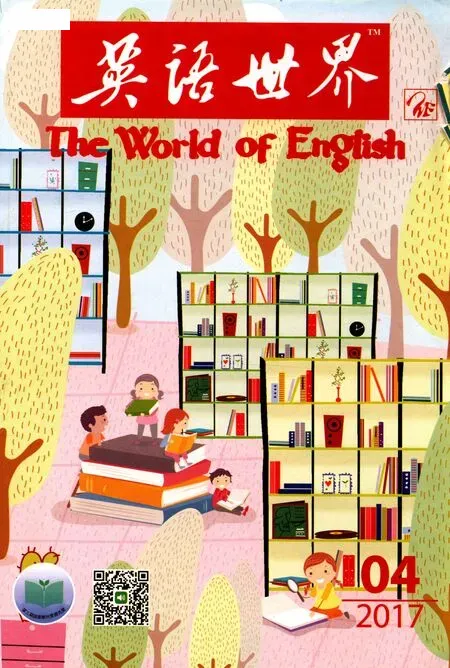翻译擂台(第5期)
翻译擂台(第5期)
【原文】
[1]今年是明代戏剧家汤显祖逝世400周年,也是英国戏剧大家莎士比亚逝世400周年。[2] 汤显祖和莎士比亚是两位同时期的世界级戏剧家,在不同的文化背景与生活环境下,同样都创作出了脍炙人口超越时空的剧作。[3] 我们是否可以假设,如果400年前也有今天一样发达的通讯和交通,说不定两人会看到彼此的作品,甚至会一见如故,相见恨晚,成为最好的朋友。
——叶长海,《人民日报》
【点评】
汤显祖与莎士比亚,两位东西方戏剧大师,原本并无关系,却因同在400年前(1616年)去世而联系在了一起,以至联合国都发起了对他们的系列纪念活动。两位的才华难分伯仲,但作品数量却相差很大。汤氏活了66岁,只有戏剧5部,而莎翁52岁早逝,却留下37部戏剧及154首十四行诗等。原因很简单:前者心系官场,视戏剧为末节;后者身在梨园,把此职当正事。然而留给后世的,哪个更有价值?年代越久,看得越清楚。
[1]中,“400周年”应为序数词(-th),而非一般数字;“戏剧家”许多人用了playwright,该词原本与dramatist意思相近,但近年多用于电影剧本作家,而后者则保留了传统涵义(而且与dramas相对应);“逝世”指的是二位,故可合并译出;而中国历史朝代后面应注明年代,以使读者有时间概念。不妨译为:This year marks the four hundredth anniversaries of the deaths of both Chinese Tang Xianzu of the Ming Dynasty (1368 – 1644) and British William Shakespeare…
[2]中,“同时期的”,许多人用了the same period /of the same historical period / in the same time等,其实contemporary不只是“当代的”,而且是同代的(alive or existing at the same time as a particular person or event);“生活环境”,有的用了ecological setting,似乎很合现在的环保理念,但此处似有过之,而ambience可以考虑,该词从法语ambiant(surrounding)而来,有古典色彩;“脍炙人口”,译成enjoy great popularity / appeal to most people 等固然不错,但考虑到两位跨东西方的界度,win universal praise似更切宜。另外,在语序上,此句翻译时亦不妨根据中文的习惯有所调整。
在英汉对比研究中,学术界一般将英语定义为“形合”(Hypotactic),即其句子成分之间主要靠语言形式手段(如关联词等)相连接;中文是“意合”(Paratactic),即词语或子句之间不用语言形式,而是通过逻辑关系和内在涵义相整合。故此,不妨将[1][2]以语言形式(如同位语、代词、动名词、介词等)整合起来:This year marks the four hundredth anniversaries of the deaths of both Chinese Tang Xianzu of the Ming Dynasty (1368 – 1644) and British William Shakespeare, two contemporary world class dramatists who created their dramas that have been winning universal praise transcending time and space, based on their own living ambiences and cultural backgrounds.
[3]中,见到“假设”,很多人用了assume,但仔细推敲,该词的原义为“to accept that something is true without checking or confirming it; accept without verification or proof”,即是一种推测,现更多用于学术上未经证实的个案或命题;而“如果”很容易与if联在一起。其实,表示虚拟语气,还可将谓语中的过去式had、should、were等移至主语前,如:I will go, should it be necessary.(有必要的话,我会去的。)故此句起码可以用这三种表现形式,如:had they…/ should they have / were they provided with…等。更确切而言,这里的“假设”实为“想象”(imagine),语气更强的则为fire imagination(激发想象)。故此处不妨译为:It should fire our imagination that …
“相见恨晚”,此处的“恨”不是现代汉语的“憎恨”,而是古汉语的原义,“恨,怨也”(《说文》),即遗憾、悔恨,英文为 regretful、regret deeply、pity、sorry等。综合考虑,该段不妨译为:It should fire our imagination that had they communication and transportation as advanced as we have today, the two giants might have read each other’s works, or even become old acquaintances and best friends at their first meeting—regrettably, they didn’t.
顺便而言,两位戏剧大师的创作精神其实极其相似:汤氏褒扬个性,痛挞腐朽摧残;莎翁悲天悯人,极富人文情怀。然而,他们在世界上的影响却不可同日而语。除了其他因素,显然也与翻译有关。 □
(点评人:林巍,暨南大学翻译学院特聘教授)
【优胜者】
@郝胜楠 @王强

